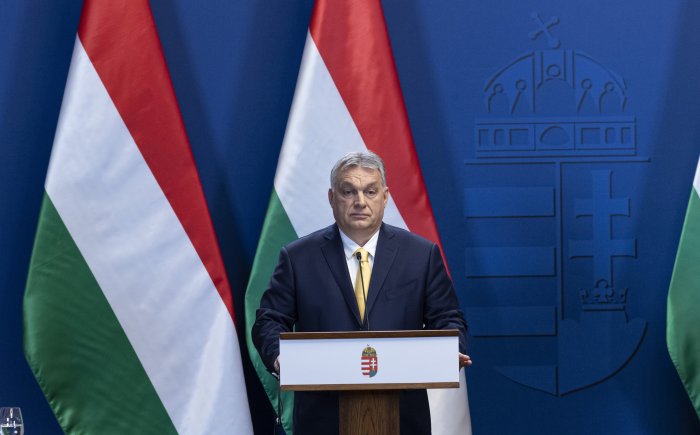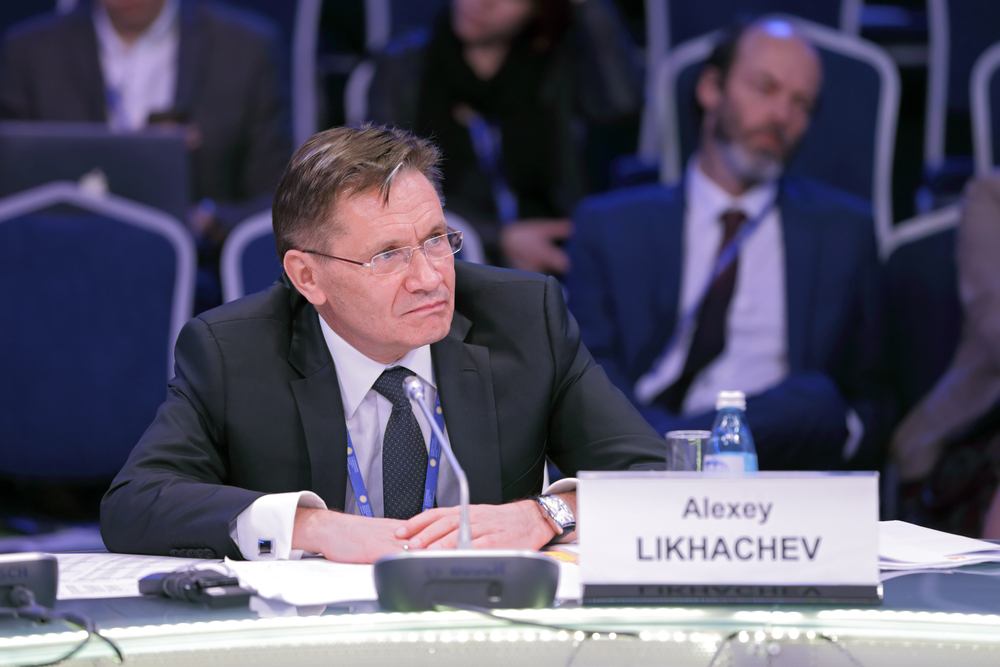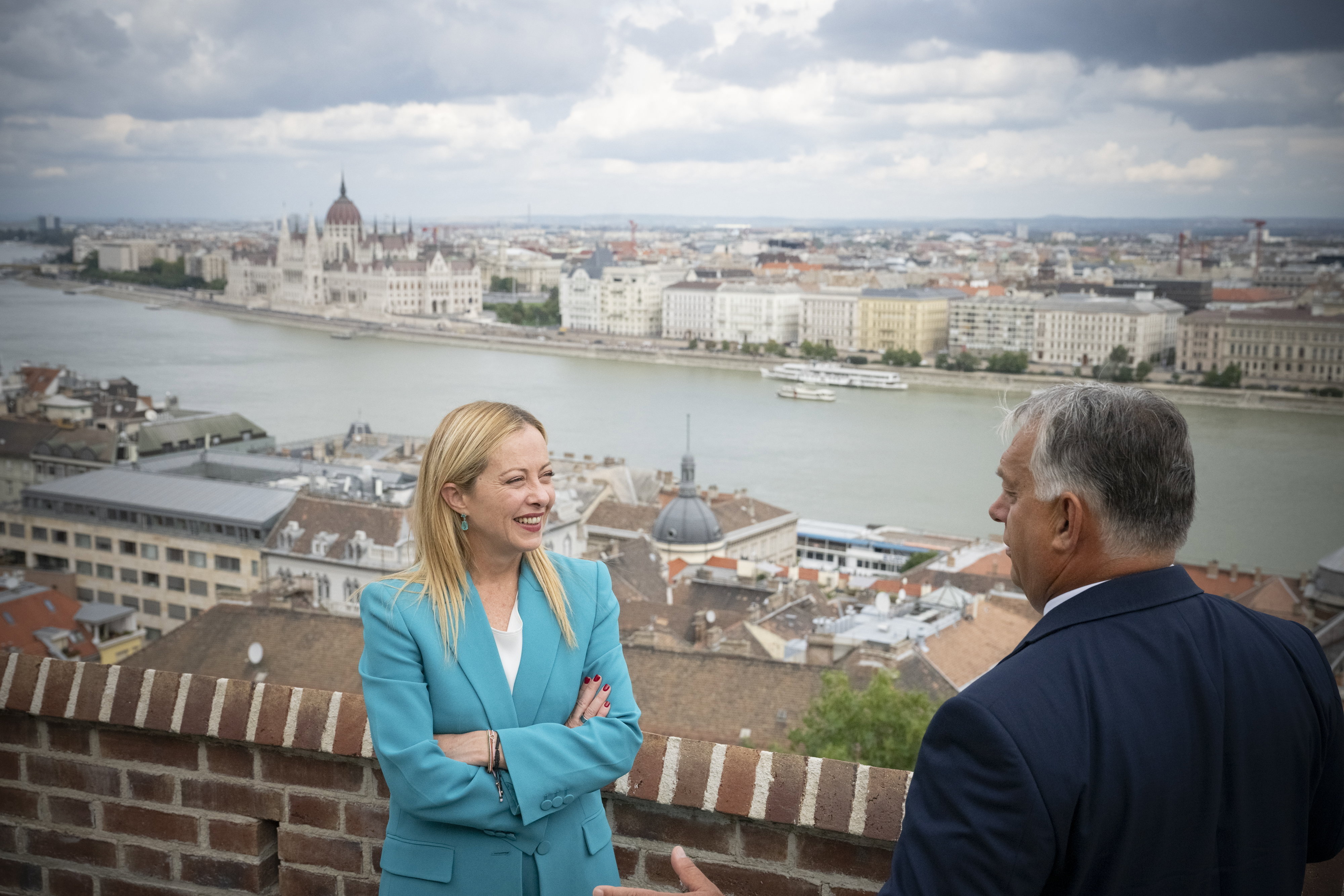Orbán Pledges Action on Poverty, Healthcare and Climate Change

Zsolt Szigetváry/MTI
Prime Minister Viktor Orbán addressed a selection of domestic and international media on January 9, speaking on subjects ranging from the economy to energy independence (“it’s better now than 10 years ago”, and from Fidesz popularity to peep shows (“Iʼm not a fan”) in a mammoth, 2 hour 45 minute performance outlining his vision for 2020 and beyond.
The Hungarian economy over the last 10 years has achieved “fantastic success”, with more than 4.5 million now at work in the country for the first time since the collapse of communism in 1989-90, and monthly wages having risen continuously for nigh on seven years, the prime minister declared in his initial summary of the last cabinet meeting, held the day previously.
Citing an employment rate “in excess of 70%” and average earnings up 80% on 2010, when Fidesz took power, Orbán nonetheless said he was “not completely satisfied” as the Czechs “remain ahead of us, albeit by a nose” on jobs data, while poverty remains, particularly in rural areas.
“Everyone’s incomes have risen, but the wages of people earning the least have increased the most: the minimum wage has increased by 120%, and for skilled workers by 135%. We want to continue these […] because the Fidesz-KDNP alliance will eradicate poverty in Hungary,” he said, in what appeared to be new concern for Hungary’s poor.
In terms of investment, Orbán declared 2019 a new high, with 101 large foreign and domestic investments topping HUF 1.7 trillion, “the highest level of [annual] investment ever in Hungary”.
Within this, Chinese, Korean and Japanese companies played a major role, being responsible for 38% of new jobs linked to new investments. “I consider this to be a vindication of the ‘Eastward opening’ policy,” he proclaimed.
In other new policy priorities, the prime minister announced initiatives in health and combatting climate change.
Health Service Spending
Healthcare workers will see pay rises totaling 72% in the next two and a half years in an effort to retain and attract staff, while public areas in health clinics are to be entirely refurbished.
However, hospitals will no longer be allowed to rack up debts, as has been the case up to now, in part due to foreign-owned companies making what he termed “extra profits”, a practice his ministers would be empowered to stop, he said.
Claiming that Hungary is “among the world’s leaders” in terms of climate change, the prime minister said Hungary would prioritize investment into nuclear and solar farms (but not wind – see box) in order to limit carbon emissions to just 10% of Hungary’s electricity usage by 2030, he said.
The prime minister’s address sparked a torrent of criticism from opponents, most notably his comments on a judicial decision to award damages totaling HUF 100 mln to Roma school children unlawfully segregated in the village school of Gyöngyöspata (see box).
Critics also noted the salary numbers failed to take into account the forint’s devaluation (it has lost one quarter of its value in the past decade, falling from HUF 265 against the euro to 333), and the effects of both the flat rate income tax and standard VAT rate of 27%, both of which hit low-income groups disproportionally hard.
“His style might seem new, but his sense of reality and the content of his politics are old. The only thing that was surprisingly new was his open racist rhetoric regarding Gyöngyöspata,” Ágnes Vadai, vice president of the Democratic Coalition, told the Budapest Business Journal, when asked for comment.
Orbán on British PM Boris Johnson
“Personally, I consider Boris Johnson to be one of the most courageous European politicians. I’ve won tough elections in a great headwind, but those were light, evening breezes [compared to] what he won.
“And I think the whole world was against him. The entire liberal-leftist media, the entire Soros network of the world, all the European Union’s pro-state people. And just because he, and the British people, believe in democracy and British independence, they’ve done it.
“So, regardless of the fact that this is not good for us, in itself, as a political achievement, hats off! Hats off! And I really do hope there is going to be a very good relationship between us and them.”
Orbán on Hungary Adopting the Euro
“I think Hungary is not ready to introduce the euro. Introducing the euro would result in unforeseen bad consequences, so, it’s not on the table. [But] we are continuously looking at this and monitoring it.”
Orbán on the HUF 100 mln Court Award to Segregated Roma School Children
“I’m not from [the village of] Gyöngyöspata, but if I lived there, I would ask what’s going on. For some reason, members of an ethnic group living in the same community will receive a significant amount without having to work, while I [would] have to slave all day for that money. I don’t know how many hours, how many days and how many months I would have to work. How come?”
Orbán on his Sports and Civic Organization Philosophy
“It’s not competitive sports that is the strategic goal in Hungary, it is sport [of itself]. It helps to develop the character in a way that will allow our children to actually live up to expectations, to be good citizens of a civic Hungary.
“All these civic organizations, culture, sport, churches; I look on these as important allies for the building of the Hungarian future, even if, at the same time, I fully respect their autonomy.”
Orbán: ‘No’ to Wind
“The answer is no, we will not issue new licenses [for wind generation]. Because we are not a rich country, so we have to concentrate our resources […] exclusively on two forms, nuclear and solar. We can’t afford to have various high numbers of alternative energy sources. So, this is the priority, and that’s the reason why wind is not in the focus of our considerations.”
SUPPORT THE BUDAPEST BUSINESS JOURNAL
Producing journalism that is worthy of the name is a costly business. For 27 years, the publishers, editors and reporters of the Budapest Business Journal have striven to bring you business news that works, information that you can trust, that is factual, accurate and presented without fear or favor.
Newspaper organizations across the globe have struggled to find a business model that allows them to continue to excel, without compromising their ability to perform. Most recently, some have experimented with the idea of involving their most important stakeholders, their readers.
We would like to offer that same opportunity to our readers. We would like to invite you to help us deliver the quality business journalism you require. Hit our Support the BBJ button and you can choose the how much and how often you send us your contributions.









